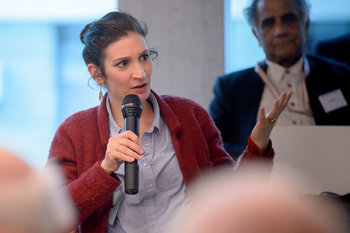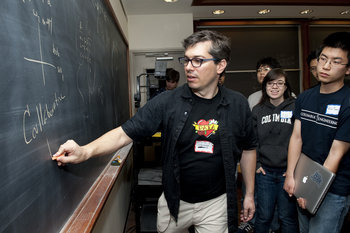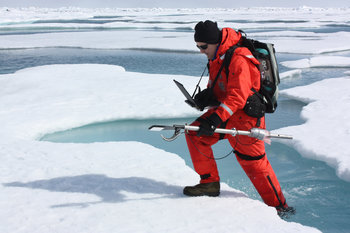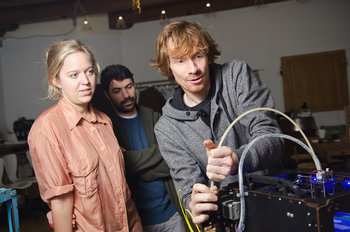
Practical
Practical logic is based on three components: claim, grounds and warrant. A claim is your conclusion, grounds are supporting evidence and a warrant shows how the evidence maps to the claim.Claim: Tokyo is rainy.
Grounds:: London is considered rainy.
Grounds:: Tokyo gets 1,530 millimeters of rain a year.
Grounds: London gets 584 millimeters of rain a year.
Warrant: Average annual rainfall is a strong indicator of whether a city is rainy.
Grounds:: London is considered rainy.
Grounds:: Tokyo gets 1,530 millimeters of rain a year.
Grounds: London gets 584 millimeters of rain a year.
Warrant: Average annual rainfall is a strong indicator of whether a city is rainy.
Premises
Any facts, assertions, probabilities or data inserted into an argument can be viewed as a logical premise that makes your argument somewhat logical. This often takes the form of "conclusion because premise."They were a bad employer because they didn't treat the customer with respect.
Deductive
Deducing your conclusion from a set of premises using deductive reasoning.A: Toronto is in Canada
B: Alice lives in Toronto
C: Alice lives in Canada
B: Alice lives in Toronto
C: Alice lives in Canada
Inductive
Suggesting a probable conclusion based on the probability of premises.A: Most Canadians like Hockey
B: Alice is Canadian
Conclusion: Alice probably likes hockey
B: Alice is Canadian
Conclusion: Alice probably likes hockey
Extrapolation
Estimating the future based on current or historical observations.Premise: The economy has faced dozens of recessions and recovered each time.
Conclusion: The economy will recover again.
Conclusion: The economy will recover again.
Analogy
Analogy, particularly metaphors, can be used to construct complex inductive arguments by suggesting that two entities are essentially the same in some way.Premise (metaphor): The Earth is a living organism.
Premise: Organisms can become ill and die.
Conclusion: The Earth can become ill and die.
Premise: Organisms can become ill and die.
Conclusion: The Earth can become ill and die.
Cold Logic
Cold logic is a logical argument that neglects human society, culture, values and emotion. This isn't likely to get you anywhere with people.Premise: Cats consume resources such as food.
Premise: Cats do not contribute to economic production.
Premise: It is a waste to spend resources without creating economic value.
Conclusion: Cats are a waste of resources.
Premise: Cats do not contribute to economic production.
Premise: It is a waste to spend resources without creating economic value.
Conclusion: Cats are a waste of resources.
Fallacy
Fallacies are flaws in logic. These can be complex and difficult to detect. As such, most of the work of having a logical conversation or constructing a logical argument is vetting logic for fallacies.A: Our AI detected that Eric was cheating on the test.
B: Our AI scanned 1 million students.
C: Only one student was actually cheating.
D: Our AI has a 1% false positive rate.
Conclusion: There is only a 1% chance Eric is innocent.
The above conclusion suffers from the Prosecutor's Fallacy. The AI scanned 1 million students with a 1% false positive rate. This means that 10,000 students were falsely identified as cheaters. Only one student actually cheated so that means there is a 9,999:1 chance that Eric is innocent or 99.99%.B: Our AI scanned 1 million students.
C: Only one student was actually cheating.
D: Our AI has a 1% false positive rate.
Conclusion: There is only a 1% chance Eric is innocent.
Notes
Cold logic is a type of fallacy as it neglects human realities.| Overview: Logical Argument | ||
Type | ||
Definition | The use of informal logic in a natural language to support an argument. | |
Related Concepts | ||
































